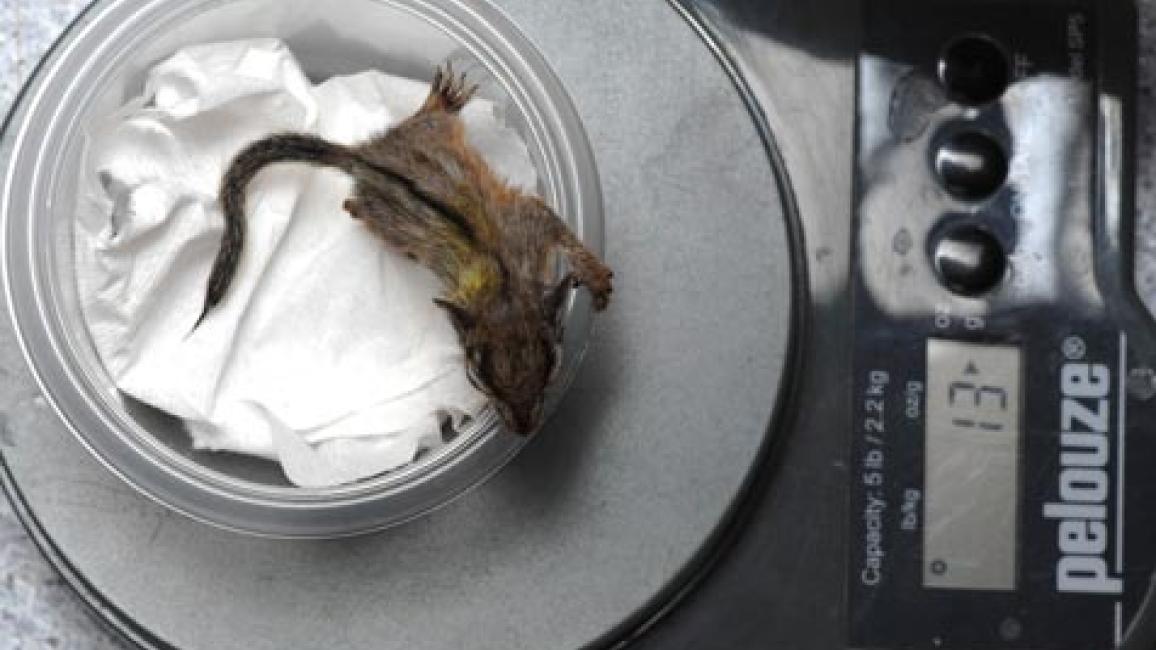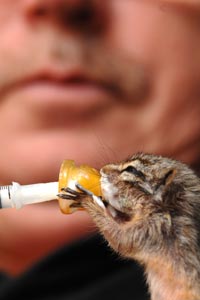All in the line of duty

Working in wildlife rehabilitation can often be an around-the-clock job, especially during springtime, when most wildlife rehabilitation centers are chock full of orphaned young. Wild Friends, the wildlife rehabilitation center at Best Friends, is definitely no exception when it comes to the springtime influx and the 24-hour care. The recent arrival of six baby chipmunks has made that fact abundantly clear, again.
 |
The chipmunks came from Cedar City, Utah, about 80 miles northwest of Best Friends. A couple had found the animals in their friend’s motor-home and attempted to care for them on their own, not knowing that what they were doing is illegal. They also didn’t know there was a wildlife rehabilitation center in their area more than willing to accept orphaned animals. After learning about Wild Friends, they promptly delivered the chipmunks, happy not to have the responsibility anymore of trying to feed the animals.
Baby chipmunks are, if anything, demanding creatures. They require feedings every two hours when they’re newborn. But it doesn’t stop there. After each feeding comes a rather ... well, all-in-the-line-of-duty procedure. The animals can’t defecate or urinate until their genitals are stimulated, something their mothers usually do by licking, and which rehabilitators do by simply rubbing them with a tissue.
"If they don’t get stimulated, they get backed up," says Wild Friends’ manager Carmen Smith.
The couple who had attempted to care for the chipmunks wasn’t aware of this. As a result, the chipmunks arrived at Wild Friends emaciated and dehydrated. It took Wild Friends a good ten days to bring them up to the weight they needed to be.
The chipmunks have, in the meantime, been going home at night with one or another Wild Friends staffer, who has to wake up in the middle of the night to do the feedings and stimulations.
Once the chipmunks are eating on their own, Wild Friends will be able to release them.
Written by Ted Brewer
Photos by Gary Kalpakoff
Over the years, Wild Friends has become a permanent home for some creatures who can never be returned to the wild. We give them a home that replicates their previous environs. You can help us improve their lives by sponsoring our wild residents.